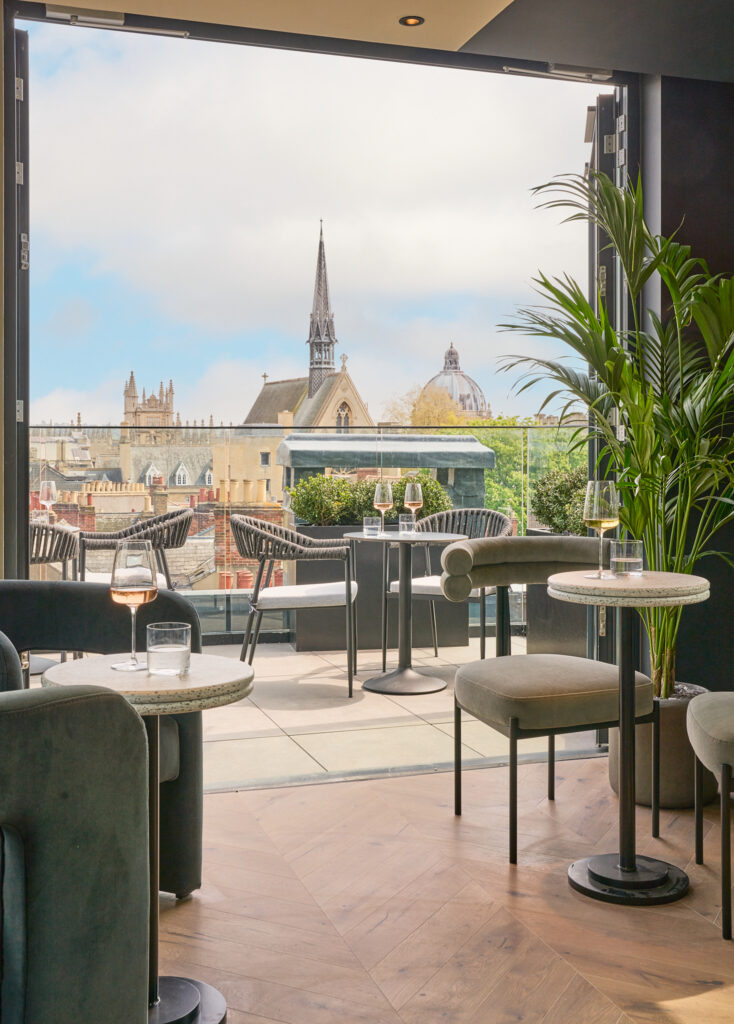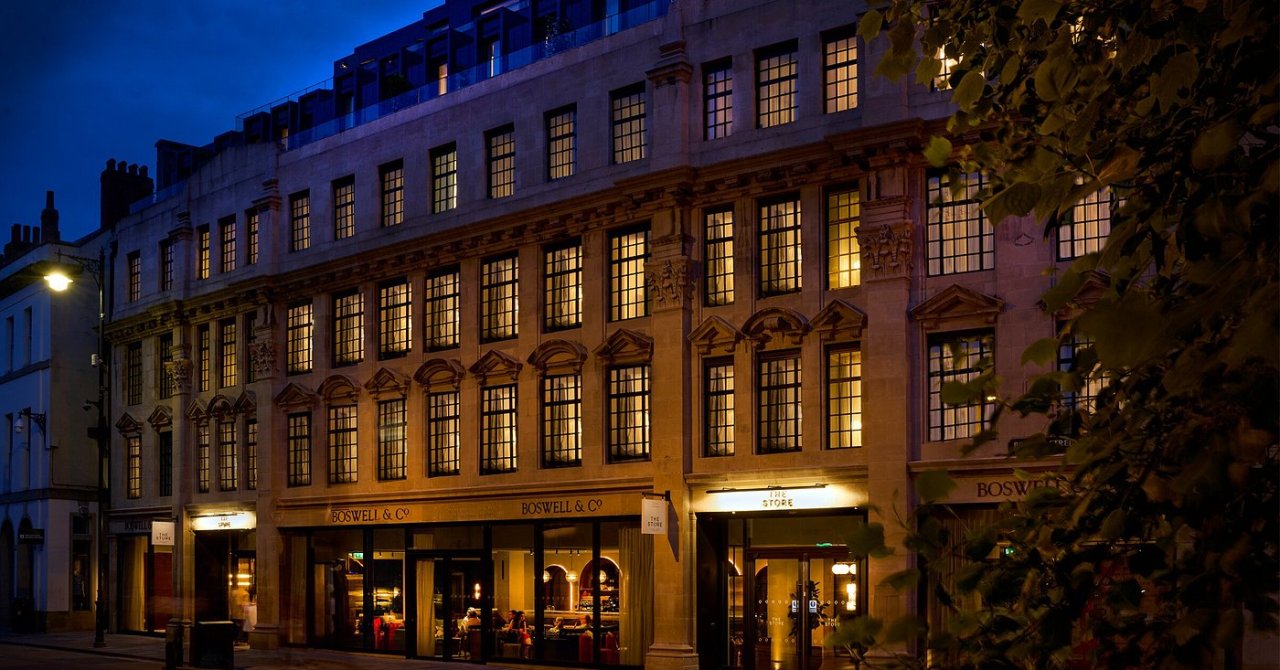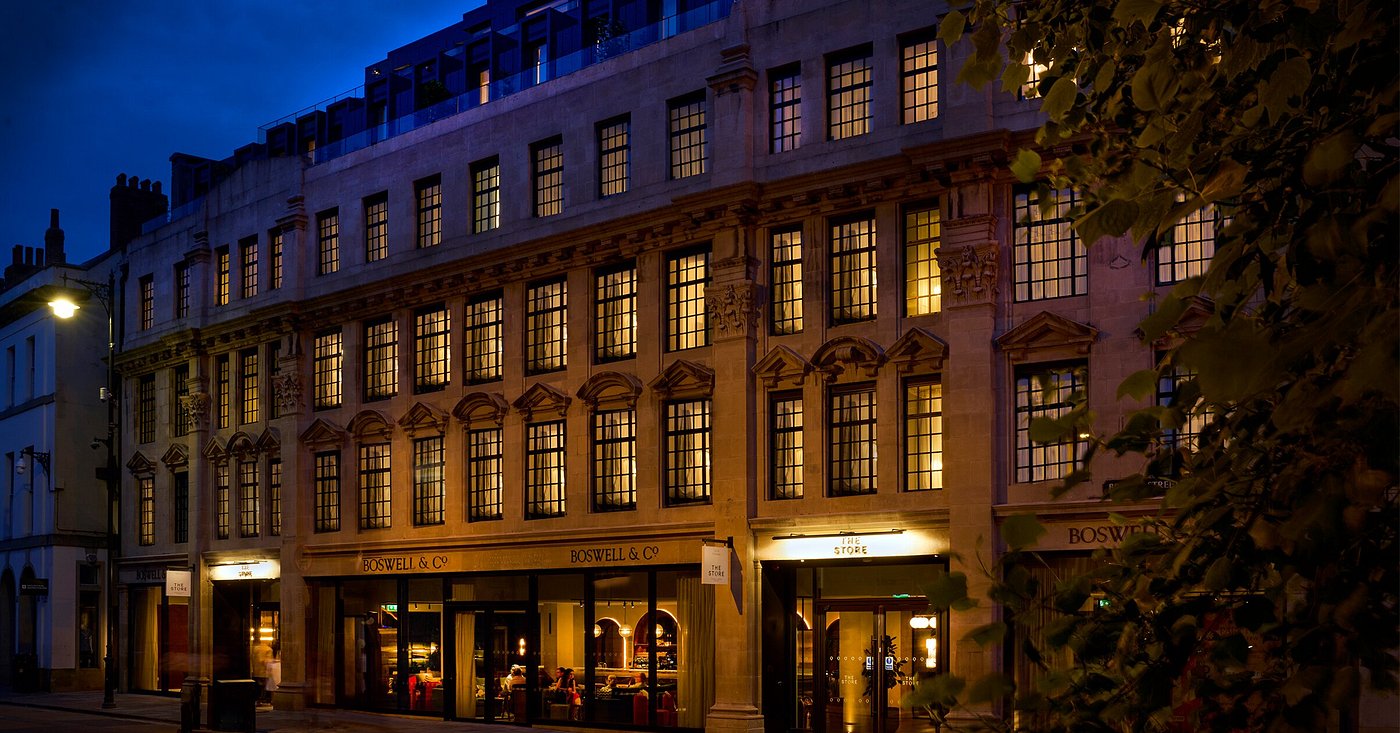One can see a city so differently over time. Visiting Oxford recently I noticed fine whisky shops and fashion stores which have always been there but which I barely registered as a student 15 years ago. There are new arrivals: some good, such as the handsome Jericho Cheese Company; others less so, such as the proliferating bubble tea shops catering to the now numerous Chinese, both students and tourists. Covered Market is still there, where we used to indulge at the original Ben’s Cookies. Though I do not remember back then the Thames Valley Police signs now warning of ‘bag dippers’ operating in the area.
Oxford is both swisher and scruffier than I remember it. Swish embodied in the new Ivy, in a palatial neo-Gothic pile on the High Street that used to be a NatWest. I wonder whether it is for visitors or well-heeled international students. Less Buller, more bao. But there is scruff too, with more scaffolding and pointless metal fences strewn about. Ugliness is the enemy of inspiration and learning.
The city’s go-to posh hotels have traditionally been The Randolph and the Old Bank. When anyone said they were off for a meal at Quod, the Old Bank’s restaurant, you knew their parents must be in town. Vanbrugh House and the Old Parsonage are also hotels deserving of their admirers. But high-end new openings in central Oxford are as rare as a free punt on a midsummer’s day, which is why the latest has had people chattering.
The Store, which opened last year, has been a talking point for another reason: it took over the site of the much-loved Boswells, which was, until it closed in 2020 (that is, during lockdown), reportedly the second oldest family-owned department store in the world (only Fortnum and Mason is older). Though I rarely shopped at it, I mourned Boswells’ passing, in the same way I imagine my predecessors mourned Thorntons, the oldest university bookshop, which closed in 2002. Cities change, but Oxford feels like one that shouldn’t.
The new hotel has made a point of marketing itself around its venerable heritage but, Rutland sandstone facade and a few wall prints aside, in reality its history feels oddly absent. And elsewhere, the new incarnation cannot seem to decide whether to embrace its surrounds. There are half-hearted nods to university life, but ‘Modern Education’ is a disappointing name for what was in fact a well-made cocktail. They should lean in and put ‘Sub fusc’, ‘The Don’ and ‘Bumptious PPE-ists’ on the drinks menu.
The sign on the bedside table to be placed on any possessions you wish to give to charity was a first for me – and I spent much of dinner wondering whether I had accidentally left it atop my suitcase
A few teething issues aside, the rooms, which cost from £285 per night, are as comfortable as you would hope. But their minimalist aesthetic sits oddly with the building’s storied past. One thing they do embrace is their sustainability credentials: the sign on the bedside table to be placed on any personal possessions you wish to give away to charity was a first for me – and I spent much of dinner anxiously wondering whether I had accidentally left it atop my suitcase. The same green ethos is reflected in the (complimentary) minibar snacks – from Fatso’s marmalade and cornflake vegan chocolate to Idyll’s wild apple, hogweed seed and sweet woodruff soda (with 5p of proceeds going to ‘rewilding Britain’). Traditionalists may rather miss the erstwhile can of Schweppes and mini Toblerone. It would be nice to have the choice.
The restaurant – Treadwell – presents ‘untraditionally British’ food. Cue an inventive Bombay rarebit, and a memorable dry aged pork tomahawk with tahini dressed hipsi cabbage, spiced bacon crumb and Padron pesto. The pre-theatre menu is good value and breakfast is generous, with a la carte options included. You can tell a lot of money has been spent – the curry sauce with my chips arrived in a Mauviel copper saucepan. (It’s a long way from how I remember them, out of a van at 3 a.m. after a night in Bridge.) The downstairs lobby/lounge (formerly the jewellery department, not that you would know) already feels like a go-to spot. It’s just the right side of bustling and priced fairly to not exclude. There is also a small but pleasant spa with excellent massage treatments.
The city of dreaming spires has surprisingly few places from which to admire them. Matthew Arnold did so from Boars Hill, a rather less ritzy spot than the Store’s rooftop bar. It is perhaps the hotel’s pièce de résistance and its arresting views will make it a sought-after booking, especially in summer months.

Yet it is another of Arnold’s famous descriptions of Oxford that comes to my mind: the ‘home of lost causes’. This hotel is not a lost cause by any means. It serves its purpose well for one of Oxford’s demographics – its tourists and wealthier residents. The tension between town and gown has always existed in Oxford, and there is nothing wrong in the city catering to the former as well as the latter. This is a smart, if somewhat soulless, hotel that will I suspect succeed.
But it is not the Oxford I want to remember. I feel strangely decadent sleeping in this sort of artificial luxury. I long to be whisked away to a dingy college dorm once more, and to drink cheap wine at long tables under high ceilings. And I cannot dislodge from my head a thought – that if Boswells had to close could it not have become a library or at least a pub? Something for the students and not the tourists. That forlorn hope is, at least for me, the lost cause.








Comments